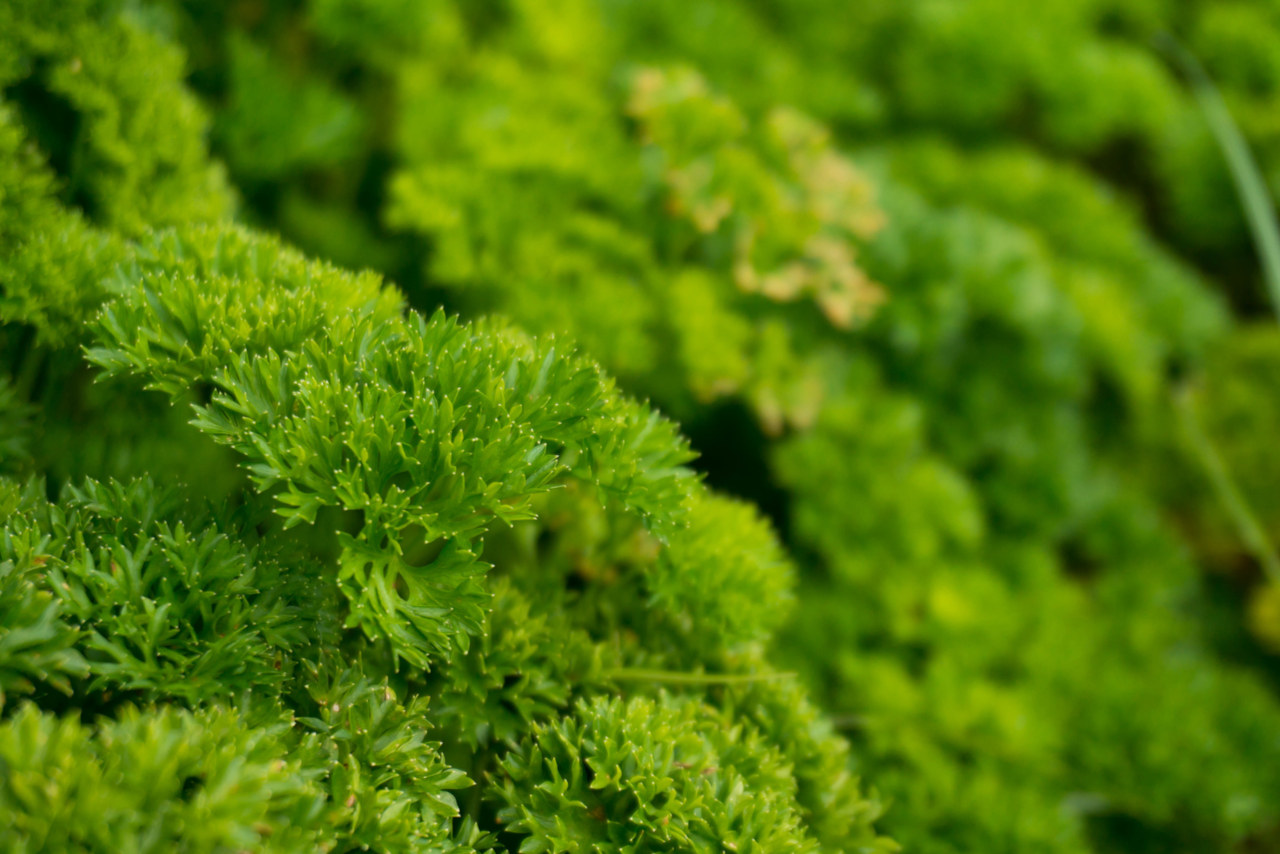In principle, perennial parsley is frost hardy regardless of its variety and can well do without frost protection.
However, if it is in a very unfavorable location, it may be useful to spread light winter protection over the bed.
Parsley is Hardy
Parsley, whether smooth, curly, or mossy, is one of the frost hardy seasoning herbs that can withstand frosty temperatures very well. They also require little care during the winter months.
However, in very cold zones, a light winter shelter will do no harm. Suitable materials for frost protection are:
- Straw
- Brushwood
- Foliage
It is important that the winter protection is water-permeable so that the plants do not dry out in winter.
Pluck Parsley After Flowering
Parsley is biennial, which means that in the first year it only forms leaves but does not flower. Flowering does not begin until the summer of the second year.
After that, the plant is no longer edible, because the toxic apiol accumulates in the leaves and especially the seeds.
Apiol can cause digestive tract issues in sensitive people. This can even result in stomach and intestinal cramps. Therefore, you should not consume parsley with the onset of flowering in the second year.
Therefore, you do not need to bring a biennial parsley plant through the winter, as you will not be able to harvest it the next year anyway.
Tear out the plants after they flower or set seed and plant a new row of parsley in a different location next year.
Do You Need to Overwinter Root Parsley?
Winter hardiness is not an issue with root parsley. It is one of the annual seasoning plants. The roots are dug up in the fall or winter.
Therefore, you will need to reseed root parsley every year.
Can You Overwinter Parsley in a Pot?
Overwintering parsley in a pot indoors is not easy. It needs a cool place where it gets enough light. and it needs regular but sparse watering.
Aphids are a major problem in parsley, attacking the plants in poor site conditions.


